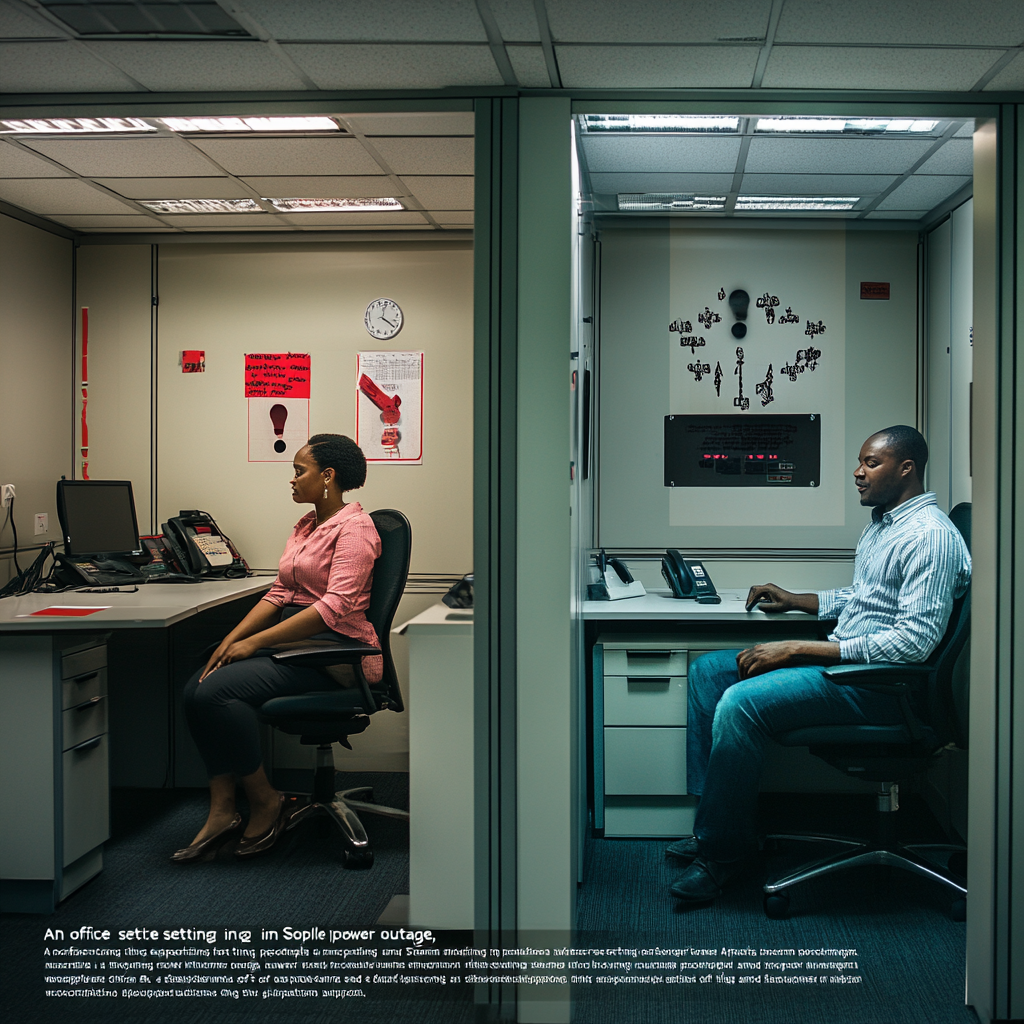
We Value Your Privacy
We use cookies to ensure basic functionalities and to enhance your experience. You can accept or decline cookies, or manage your preferences.
Privacy Policy | Cookies Policy
Discover how load shedding affects the recruitment process in South Africa, from disruptions in communication to innovative solutions.
5min read
Load shedding has become an endemic issue in South Africa, significantly impacting daily life and business operations. This frequent power outage is a challenge that has permeated various sectors, including the recruitment industry. From important meetings being cut short to critical data being inaccessible, the inconsistencies in electricity supply impose substantial barriers. Recruiters struggle to meet deadlines due to the unpredictability of power availability, which often leads to delays in the hiring process. Furthermore, the inability to access online systems for extended periods hampers communication between HR departments and potential candidates.
Load shedding affects not only recruiters but also candidates. Job seekers in South Africa face numerous obstacles due to power outages. Scheduled interviews might be abruptly cancelled, leading to frustration and anxiety. Additionally, the necessity to reschedule appointments can diminish the candidate's initial enthusiasm and confidence. In a competitive job market, such delays might result in the loss of top talent, who may seek opportunities with companies that seem more reliable. Moreover, the digital transformation of recruitment processes, such as online assessments and virtual interviews, is severely compromised during periods of load shedding. In essence, the overall candidate experience is negatively affected, making the recruitment process more cumbersome.
The reliance on technology in modern recruitment is undeniable. However, load shedding introduces significant setbacks, particularly concerning data security and the efficient handling of information. Frequent power outages can lead to data corruption or loss, affecting the integrity of candidate information. Additionally, the use of backup power solutions, such as generators or uninterruptible power supplies (UPS), may not always be feasible for smaller organizations due to cost constraints. Recruiters have to constantly worry about maintaining the confidentiality and security of their databases, as interruptions can lead to vulnerabilities. Ensuring the availability of robust cybersecurity measures becomes even more critical in such scenarios.
Despite the challenges, South African companies are finding innovative ways to adapt to load shedding. Remote work setups have become more common, allowing both recruiters and candidates to operate from locations with stable power supply. Organizations are also investing in renewable energy solutions like solar panels to ensure continuous operations. In addition, cloud-based software solutions offer a reliable alternative, enabling access to critical data from any location. The shift towards more resilient infrastructure and flexible working conditions demonstrates the innovative spirit of South African businesses in overcoming these hurdles.
The South African government has recognized the severity of the load shedding crisis and is taking steps to mitigate its impact. Initiatives aimed at stabilizing the electricity supply and promoting energy conservation are in progress. Government and private sector partnerships are also being forged to develop long-term sustainable energy solutions. Additionally, support programs are being introduced to assist businesses, particularly small and medium enterprises (SMEs), in adapting to these challenges. These efforts, while still in early stages, offer hope for a more stable and predictable power supply in the future.
The recruitment industry in South Africa, like many other sectors, is evolving to become more resilient in the face of load shedding. By leveraging technology and adopting flexible working practices, recruiters are finding new ways to maintain efficiency. Collaboration between the government and private sector is vital for creating a sustainable solution to the electricity supply issues. As the country works towards overcoming these challenges, the recruitment industry stands to benefit from increased stability and innovation. This period of adaptation and resilience is likely to shape a more robust and efficient recruitment landscape in the coming years.
Load shedding is a measure used to reduce the load on an electricity grid by temporarily turning off the power supply to certain areas.
Load shedding disrupts communication, delays interview schedules, and may compromise data security, making the recruitment process more cumbersome.
Candidates can ensure they have backup power solutions, stay in constant communication with recruiters, and remain flexible with interview schedules.
Yes, companies are investing in renewable energy sources, utilizing cloud-based software, and adopting flexible working conditions to mitigate the impact of load shedding.
The government is implementing initiatives to stabilize the electricity supply, promoting energy conservation, and developing long-term sustainable energy solutions in partnership with the private sector.
Small businesses are adopting remote work setups, investing in renewable energy sources, and utilizing cloud-based technologies to maintain operations during load shedding.